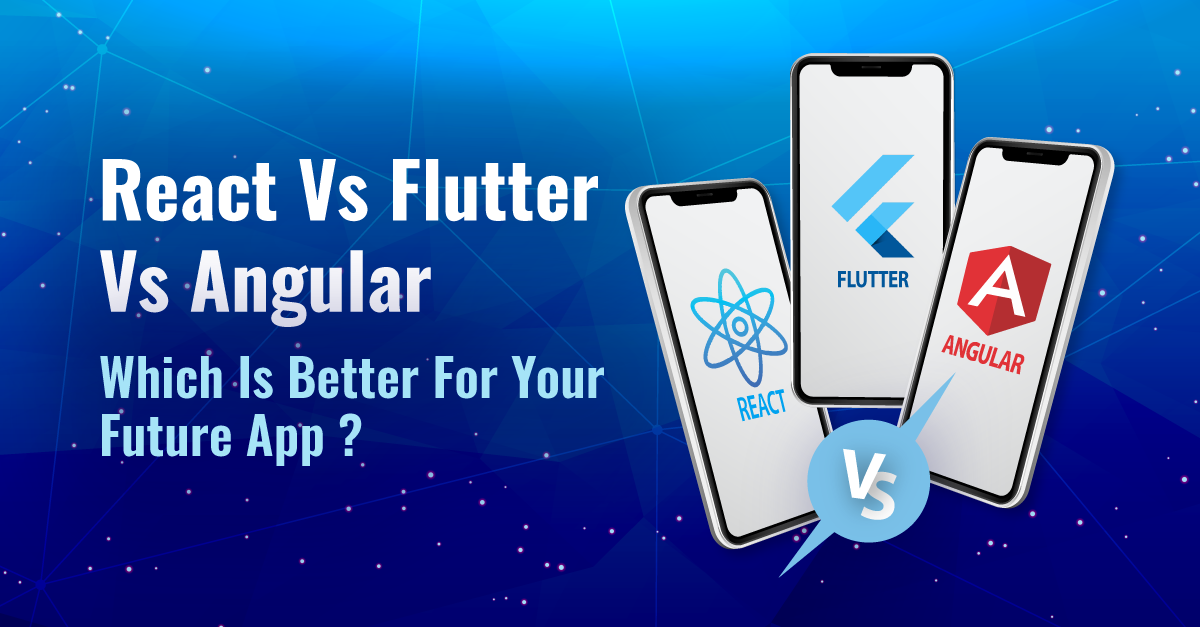The first few mobile applications included messaging, gaming, and music apps. They were solely developed to entertain the customers. However, with the fast acceptance of the mobile-first world, today, apps are designed to provide more than just entertainment. Modern applications help increase productivity, offer convenience, and aim to improve collaboration.
Businesses must think mobile-first to get to their customer’s minds first in the highly evolved landscape. With more the 250 million app downloads daily, you need to stand out to create the perfect impression on your target market. Apart from delivering a high-performing innovative solution, you need to make your mark in the market before your competition does.

Cross-platform or Native: How to Approach?
If you want to test your target market with your idea or gain more visibility for your business with an app, you should go with cross-platform solutions. It accelerates the time-to-market and allows you to gain traction from iOS and Android customers.
We are talking about a cutthroat competition where survival of the fittest happens only when your solution is accepted. At the same time, we are talking about tight budgets and excellent visibility. Cross-platform gives all of this and more, thus maximizing downloads and engagement.
React, Flutter, or Angular: The Cross-platform Framework to Choose
When it comes to cross-platform app development, multiple frameworks can help accomplish your goals. Angular.JS, Xamarin, React Native and Flutter are some of the top frameworks that help you get started.
The question remains – which framework to choose?
Flutter- Pros & Cons
Flutter is one of the most popular development frameworks at the moment. Most developers love it. This framework is more like a UI toolkit that Google developed to create native-like applications with aesthetically designed interfaces.
The framework offers a layered architecture that provides you with complete control of every interface pixel. It speeds up development and helps release apps faster.
Pros of Flutter Development
- Hot Reload: This is the most significant feature of the Flutter framework that allows developers to make changes in the production environment. You can preview your changes without recompiling the code. As a result, you can incorporate them within minutes, whether it is fixing bugs or adding new features.
- Community Support: Flutter has a vast community that supports app developers. Whether you are stuck while coding something new or need help with a feature addition, these developers are ready to provide the necessary help.
- Accelerates Time-to-market: When you are planning app development with Flutter, you can speed up the time-to-market. With this framework, you can release apps early into the market compared to the others. The single codebase allows you to code once and makes slight changes as needed by the particular platform.
- UI-Native Separation: The UI elements are separate from the native components. As a result, you will notice similar interfaces across operating systems.
- Documentation: The framework comes with complete documentation covering all your questions and coding needs. as a result, whether it is integration or programming, you have all the answers
Cons of Flutter Development
- Not too Stable: One of the most significant disadvantages of this framework is the instability that comes with it. As the toolkit is relatively new, you will notice that it is not very stable and mature. As a result, it may not allow you to implement advanced features important for app development. Many of these features are not supported by the framework. Even the Dart framework is immature compared to the other programming languages such as Swift or Kotlin.
- Occupy More Space: The Flutter app size is more compared to the apps developed using other frameworks. As a result, they occupy more space. If your user is using an old phone or a smart device with limited memory, they may not be able to download these applications.
- No Web Apps: The framework doesn’t support modern browsers. As a result, you cannot develop web applications with this framework.
React Native: Pros and Cons
React Native uses JavaScript programming language to create cross-platform apps that provide native-like experiences. It is the open-source framework that was released for Facebook. The framework uses the native JavaScript library, making it easier to code using native components and delivering a more functional interface.
Pros of React Native Development
- Flexibility with Modular Architecture: With this framework, you can segregate program functions into blocks that are called modules. In this case, you are not dealing with individual codes; you are dealing with blocks. They can be reused and also updated at will. So, you won’t need to code every part; you can reuse the blocks and add them to your interface.
- Community Support: The React Native community hosts a strong developer base. There are developers ready to support you with your programming needs.
- Third-party Plugins: When you cannot code or get some component internally, you can rely on third-party plugins to help you with the case. They will immediately extend the needed support or offer solutions that can accelerate the development process.
- Native-like Interfaces: With React Native, you can use the native components and create more native-like experiences for your customers. It helps relay a completely different experience for Android and iOS customers. As a result, it enhances engagement levels.
Cons of React Native Development
- Higher Initialization Time: The framework was developed using JavaScript, akin to the original programming language. It takes longer to initialize, even in runtime across devices and gadgets. So, this delays the rendering and causes performance and start-up hiccups.
- Lag in Updates: Both Android and Apple send out regular updates. However, it takes time for React Native to embrace these updates and add the functionality to its framework. You will either need to wait for the community to offer the solution or use the native bridges for the new features.
- Steeper Learning Curve: This framework comes with a steeper learning curve than others. It is not a fresher-driven framework. The reason being the framework is a combination of JavaScript and JSX.
Angular JS- Pros and Cons
This framework was developed using JavaScript combined with HTML and CSS to create web applications. This framework is maintained by Google and is supported by a developer community. This framework converts the HTML-based content into dynamic opportunities.
Pros of Angular JS
- Data Binding Options: This framework offers ease of data binding, in which the data from both providers and consumers move asynchronously. As a result, if you make changes in the MVC model’s view layer, it is immediately reflected in the model and controller.
- Faster DOM Manipulation: Owing to this framework’s two-way binding approach, you can easily code, update, and translate the (Document Object Model) DOM.
- Speeds Up Prototyping: Prototyping is crucial to developing the interface and ensuring a functional app. you can create prototypes with ease with this framework.
- Debugging made Easy: With this framework, you get the opportunity to conduct end-to-end and unit testing. Plenty of testing tools and components allow you to speed up this job and ensure a bug-free app.
Cons of Angular JS
- JavaScript Support: These applications will not run on devices or systems with disabled JavaScript support. This is a huge disadvantage as it limits the widgets where you can access these applications.
- MVC Expertise: The developer needs to possess experience and expertise in developing using MVC architecture. This programming language uses MVC, and a lack of knowledge can increase the development time.
Which Framework to Choose: React, Flutter, or Angular
We have discussed the pros and cons of each platform and how they are used. Here we will talk about when you can use each of these frameworks.
- If you plan an MVC for a start-up idea or want to validate your idea quickly, you can use React Native. It helps release apps with a native-like interface to improve business solutions. However, it is not possible to develop high-performance app solutions with this framework
- Flutter is best used for applications that require security and high performance. However, owing to the instability offered by the framework, you may not be able to release advanced and complex applications.
- Angular JS is best used to release single-page or simple mobile/web applications.
Whether you want to develop an application using Angular, React, or Flutter, you need a robust technology partner. Expert App Devs can be your perfect partner in translating your business idea into an application.





Leave a Comment